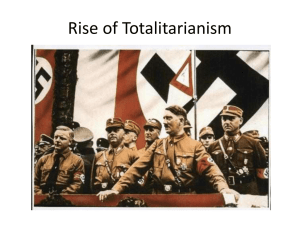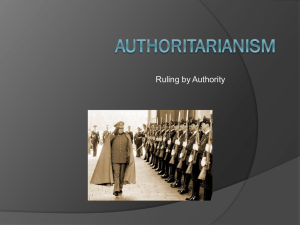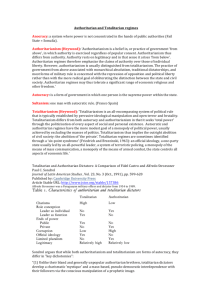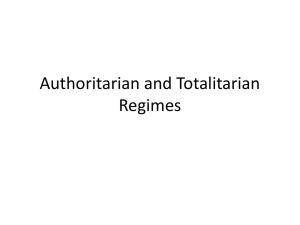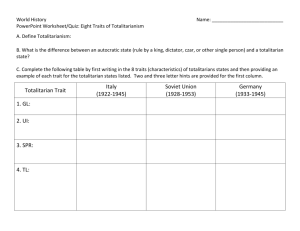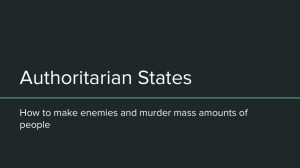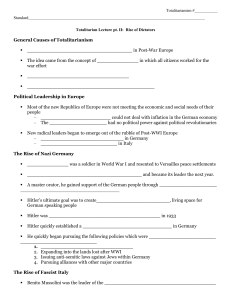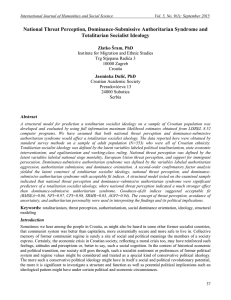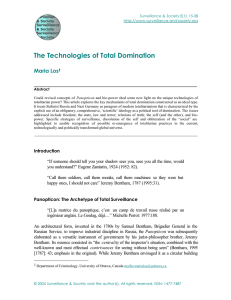On Totalitarianism
advertisement
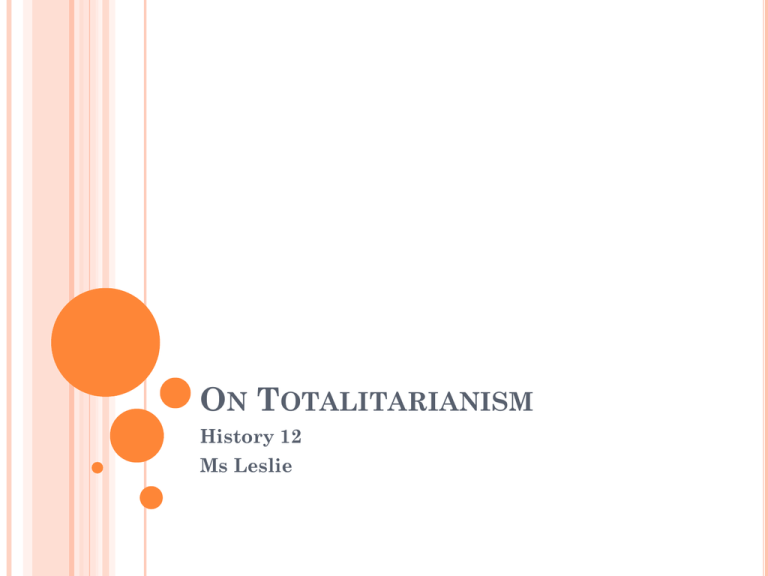
ON TOTALITARIANISM History 12 Ms Leslie TOTALITARIANISM is a political system where the state recognizes no limits to its authority and strives to regulate every aspect of public and private life wherever feasible. Totalitarianism is generally characterized by the coincidence of authoritarianism (i.e., where ordinary citizens have no significant share in state decision-making) and ideology. Totalitarian regimes or movements maintain themselves in political power by means of an official all-embracing ideology and propaganda disseminated through the statecontrolled mass media, a single party that controls the state, personality cults, control over the economy, regulation and restriction of free discussion and criticism, the use of mass surveillance, and widespread use of state terrorism. ISN’T THAT AUTHORITARIAN? the term 'Authoritarian' denotes a political organization in which the single power holder - an individual person or 'dictator', monopolizes political power. The term 'Authoritarian' refers rather to the structure of government than to the structure of society. An Authoritarian regime confines itself to political control of the state. But a totalitarian regime does much more. It attempts to mold the private life, soul, and morals of citizens to a dominant ideology. The officially proclaimed ideology penetrates into every nook and cranny of society; its ambition is total. Totalitarian regimes seek to destroy civil society i.e. communities that operate independently of the State. Neither the Italian fascists nor the Nazis completely 'destroyed their respective social structures', and so these countries 'could rapidly return to normalcy' after defeat in World War II. In contrast, attempts to reform the regime in the USSR 'led to nowhere because every non-governmental institution, whether social or economic, had to be built from scratch. The result was neither reform of Communism nor establishment of democracy, but a progressive breakdown of organized life'". THAT MEANS??? Hitler and Mussolini = Authoritarian Stalin = Totalitarian KEY POINTS OF TOTALITARIANISM 1. An Elaborate Ideology. It must have an official body of doctrine covering all aspects of man’s existence to which all members of society will follow. This doctrine is usually focused on achieve a perfect state of mankind. World conquest/universal acceptance is the final goal. 2. A single mass party. Typically lead by one person and a party of a small percentage of the population. The party my be unquestioningly loyal to the leader and ideology and prepared to assist in any way in prompting the party’s policies. 3. A system of terror. It can by physical or psychological. Can be party controlled or by the secret police. The terror is usually directed against ‘enemies of the state’ and also selected classes of the population. Usually exploits modern science and more specifically scientific psychology. 4. A Technologically conditioned, near-complete monopoly of control of all means of mass communication. So state controlled press, radio and motion pictures. 5. A similar total control of all weapons of armed combat. 6. A control and direction of the entire economy through the bureaucratic co ordination of formerly independent corporate entities.
